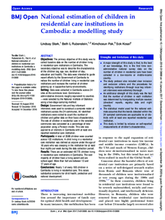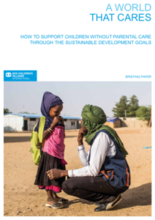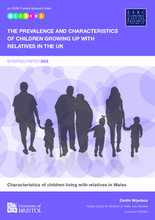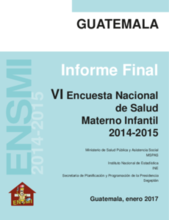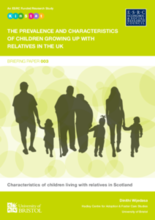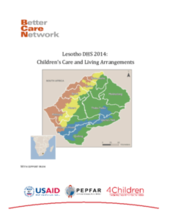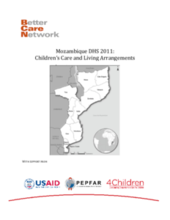Displaying 201 - 210 of 565
Bringing together cross-disciplinary expertise, this volume addresses a vast range of topics related to child abuse and neglect in Uganda.
The primary objective of this study was to collect baseline data on the number of children living in residential care institutions in Cambodia.
This briefing describes how the needs of children without parental care can be addressed through five of the SDGs: no poverty (1); quality education (4); decent work and economic growth (8); reduced inequalities (10); and peace, justice and strong institutions (16).
This briefing paper, which is the second in a series, provides a brief overview of the characteristics of the children growing up with relatives in Wales.
El informe tiene como propósito presentar a las autoridades gubernamentales, no gubernamentales, agencias de cooperación internacional, medios de comunicación social, instituciones académicas, centros de investigación y población en general, los resultados obtenidos que muestran las condiciones de salud reproductiva, salud materno infantil y para los demás temas incluidos en la encuesta.
This briefing paper, which is the third in a series, provides a brief overview of the characteristics of the children growing up with relatives in Scotland.
This country brief is part of a series that aims to provide an analysis of children’s living and care arrangements according to the latest available data from Demographic and Health Surveys (DHS) or Multiple Indicators Cluster Surveys (MICS) at the time of publication.
The paper presents a detailed analysis of the Russian official statistics for orphans and children placed out of parental care.
Undertaking a connected person / family and friends assessment is designed to help social workers to manage and complete a comprehensive and evidence-based assessment of connected people / family and friends who wish to foster or be special guardians to a known child or children.
This series of country briefs aims to provide an analysis of children’s living and care arrangements according to the latest available data from Demographic and Health Surveys (DHS) or Multiple Indicators Cluster Surveys (MICS) at the time of publication.

